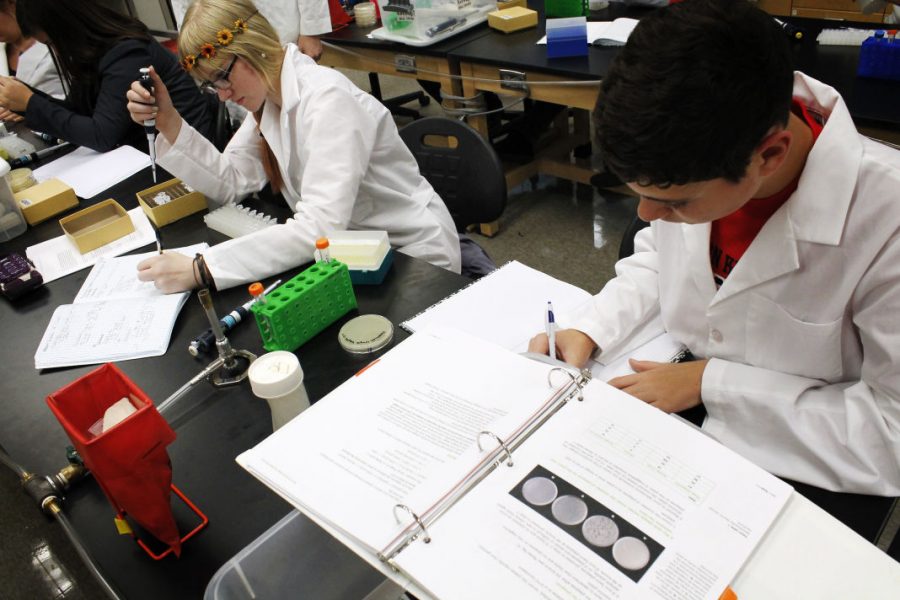Increased resources, funding expands research opportunities
October 9, 2014
With expanding financial and physical resources directed toward research, the number of research projects and studies at WKU is increasing amongst faculty and students.
“The greater availability of funds has unleashed a lot of student potential,” Potter College Assistant Dean Andrew McMichael said. “I think in the last several years projects have become much more sophisticated.”
In terms of social behavioral studies, Paul Mooney, compliance manager for the Office of Research, said WKU falls at around 500 per year. The University of Louisville is below with 300 studies and the University of Kentucky recorded almost 700.
Programs such as the FUSE grant financially allow students and faculty to carry out projects involving travel, conferences and other activities related to completing the study. The Research and Creative Activities Program (RCAP) also provides financial support, but goes toward faculty research endeavors, which in turn may result in student research.
Cathleen Webb, dean of Ogden College, referred to this process as the “Research Cycle.” It’s a cycle that describes the process studies or projects take to inspire additional research. A student may branch off a professor’s study in order to answer a lingering question.
“It’s contributing to the body of knowledge,” Webb said. “Close involvement encourages undergraduates to pursue research.”
Webb noticed an increase in student researchers within Ogden College this year, with the greatest amount of FUSE applicants deriving from the school. She believes faculty has a large role to play in the increased research interest from students.
“I think the faculty are teaching at Western because they want to encourage undergraduate researchers in their program,” she said. “We’re also hiring faculty who know their focus needs to be on undergraduate research.”
Chemistry professor Jeremy Maddox studies the fundamentals of chemical reactions. He is currently researching the rate of reactions between two molecules and is using undergraduate students’ assistance for the study.
Maddox found that working with students applies a win-win situation to his research.
“It assists me in the sense that I have a lot of things to do and need help to do all my research, and it’s great professional training for the students,” he said.
In order to be competitive for graduate school or on the job market, it is becoming increasingly important for students to obtain outside class experience. That means something different to every field of study.
Research is a broad term spanning across campus. Every department, major and student utilizes it in a different way and emphasizes its importance on varying levels.
“Even within a department, we have such a huge variety of what they do, but they all engage in some kind of research,” McMichael said. “They’d be creating a work in whatever the context of their discipline is.”
Where sociology students may conduct surveys, interviews and experiments during research, art students create paintings or ceramics as creative activities. Sociology experiments could wind up in a journal, while art finds a home in galleries.
The Main Gallery in FAC currently holds student work to be judged by alumni jurors. Art majors use gallery opportunities as their research outside class.
No matter the discipline, study out of class lends to the overall college experience and education.
“The analytical skills involved in a research project are going to be key,” McMichael said. “It prepares students well for whatever they’re going to do in their careers.”






















![Megan Inman of Tennessee cries after embracing Drag performer and transgender advocate Jasmine St. James at the 9th Annual WKU Housing and Residence Life Drag Show at Knicely Conference Center on April 4, 2024. “[The community] was so warm and welcoming when I came out, if it wasn’t for the queens I wouldn’t be here,” Inman said.](https://wkuherald.com/wp-content/uploads/2024/04/smith_von_drag_3-600x419.jpg)


